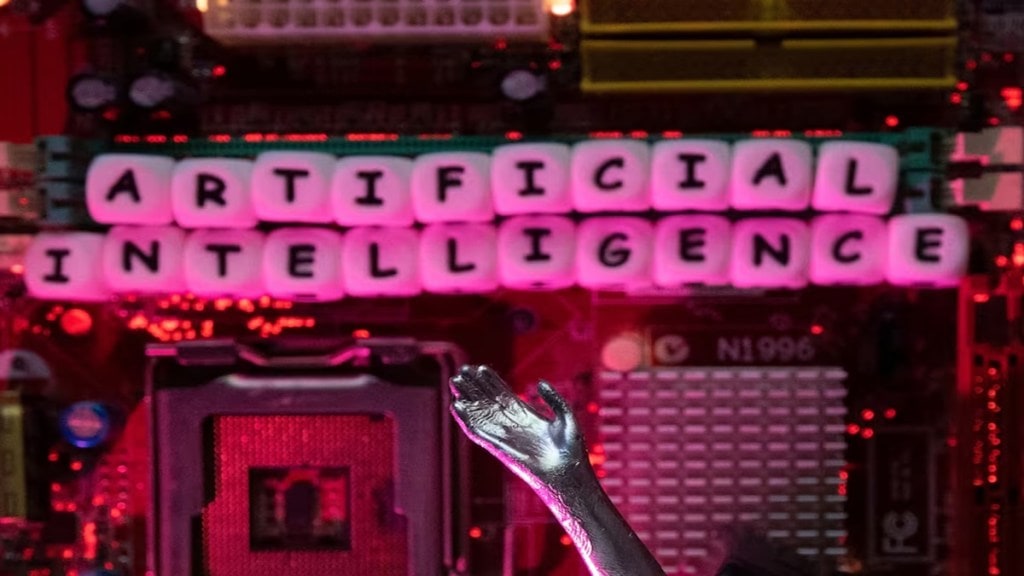By Vineet Chugh
I am writing less because of ChatGPT!
I am reading less because of Reels & OTT!
And I am sure, I am not the only one.
In today’s world, technology is our best friend. It saves time, makes us more efficient, and even gives us that modern edge. But, isn’t it also spoiling us like that one rich friend who showers you with luxuries but pulls you further away from reality?
So why are we so head over heels for this friend, and why can’t we get enough of it? I did some introspection and here are the possible reasons I have identified:
1. Instant Gratification
Reading a book requires patience, focus, and discipline. On the other hand, watching a reel, a short video, or even a few minutes of a podcast delivers instant gratification, along with a quick sense of accomplishment. The faster I consume content, the less I engage in reading. It’s unfair to my books, which now gather dust on the shelf, probably envious of my obsession with technology and social media platforms. Every time I reach for my phone instead of a book, I’m reminded how easily I’ve succumbed to the allure of these instant pleasures.
2. Faster Output
As a marketing professional, my work revolves around a lot of content and communication. Not so long ago, I used to take time to think, research, and craft fresh content. Writing felt like a process—one that required reading, absorbing, and then producing some original work. But now, the first thing I do is open ChatGPT and scribble my thoughts to get an output. Even if it’s not the final result, it gives me a ready-made start that I can build on. Whether it’s an agency brief, ad copy, blog posts, or even simple emails, I find myself relying on ChatGPT to do the heavy lifting. I’m not sure if this is good or bad, but it’s certainly changing how I approach writing and content creation.
3. Shorter Attention Span
“Quick” is undoubtedly the flavour of the season. Quick commerce is booming, outpacing traditional e-commerce, and similarly, quick content is taking over the way we consume information. We are told our attention spans are shrinking, which is why we prefer reels, shorts, and snackable content over long articles, books, or in-depth reading. But is it really that we have shorter attention spans, or is this short attention span the effect of consuming content at lightning speed? I think it’s the latter. The more we engage with fast-paced content, the more we train our minds to crave it, reinforcing the cycle of shorter and shorter focus.
4. AI Dependency
Let’s face it: AI has revolutionized how we work. From generating ideas to drafting full-blown content to completing design jobs, it’s made everything so much faster. But with this ease comes a dependency. Now, instead of taking the time to craft something original, we reach for AI (Chat GPT, Midjourney etc) to get a quick solution. We’re no longer writing as much because some tool or App is doing it for us, often faster, if not better. This shift has made us more productive in one sense but also lazier in the creative process. It raises a big question: Is the art of writing slowly being outsourced to AI?
While technology has made our lives easier, faster, and more convenient, it is also quietly changing how we think, create, and engage with the world around us. We are reading less because binge-watching and scrolling reels offer a more effortless form of entertainment. We are writing less because AI tools like ChatGPT provide pre-packaged solutions that cut down the time and effort required. Our attention spans are shrinking because the content we consume demands less from us, shaping a generation that favours speed over substance and pace over patience.
But here’s the open-ended question: Where do we draw the line? Is this shift simply the natural progression of technology, or are we losing something essential in our need for speed and convenience? Will we reach a point where we miss the slower, more thoughtful ways of engaging with content, or is this just the future of how we will live, work, and consume?
The answer remains to be seen, but one thing’s for sure—our relationship with technology is a revolution of its own, and it’s still evolving.
The author is head of marketing at QueueBuster POS. (Views expressed are the author’s own and not necessarily those of financialexpress.com)

